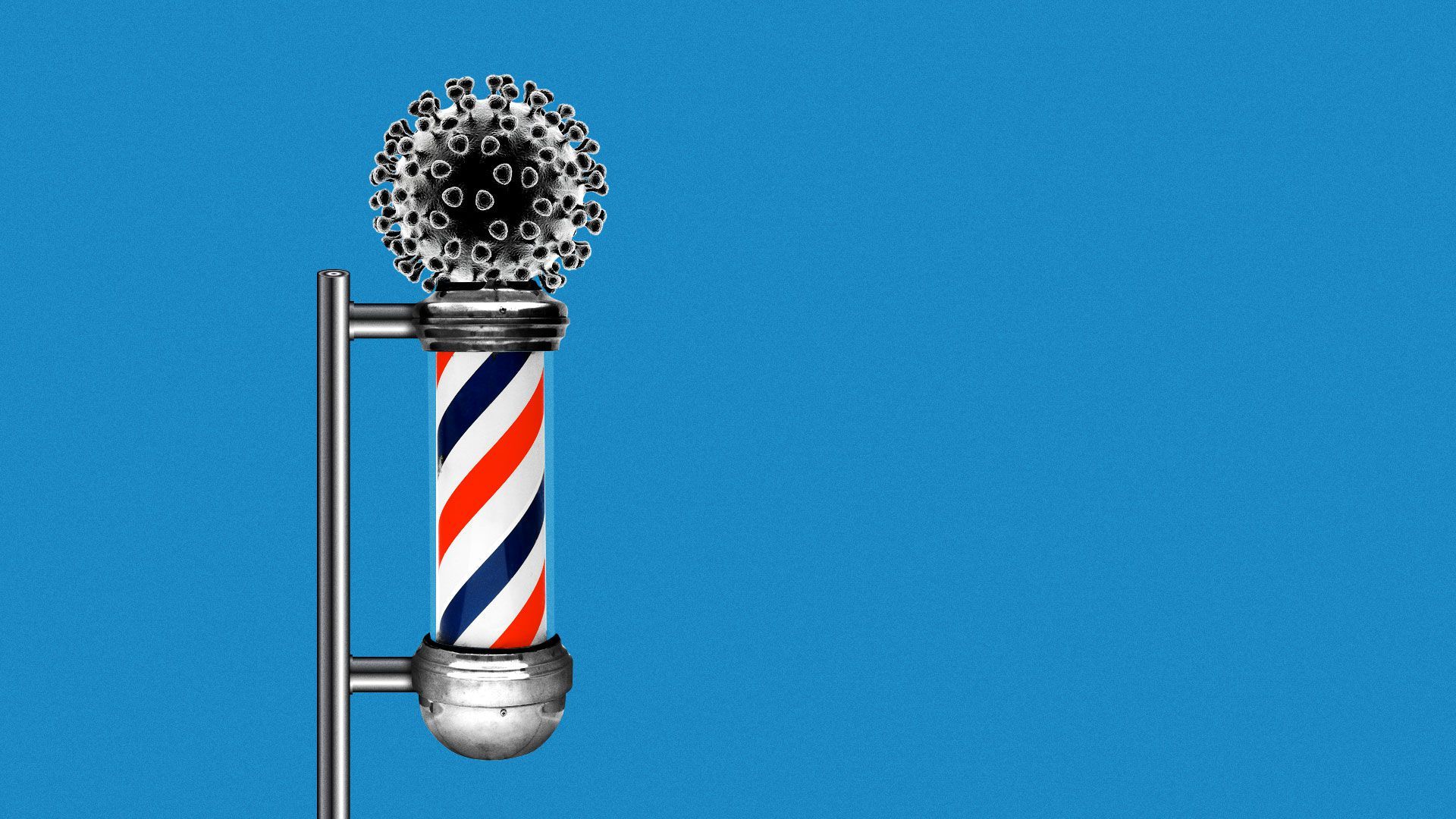The second wave of essential workers
Add Axios as your preferred source to
see more of our stories on Google.

Illustration: Eniola Odetunde/Axios
The pool of American workers on the front lines of the coronavirus pandemic is getting a lot bigger.
The big picture: Just as grocery and delivery workers found themselves fighting a crisis they didn't sign up for back in March, teachers, hairstylists and temperature checkers are part of a new wave of workers who are now in harm's way as the pandemic rages on.
- "This is a new group of essential workers," says John Logan, a U.S. labor historian at San Francisco State University. "They're people who never thought they’d be putting their life on the line by going to work."
By the numbers: There are already around 55 million Americans working front-line jobs — defined as jobs that require exposure to a large number of people who could potentially carry the virus. Now add to that millions of teachers, retail sales reps, nail techs and other professionals who have returned or will return to work in the coming weeks as their workplaces reopen.
"With most of the country reopening — whether it's safe or not — workers in so many occupations are put in the untenable position of having to choose between being able to sustain their families or putting their health at risk," says Sharon Block, executive director of the labor and work-life program at Harvard Law School.
Teachers are under tremendous pressure as some cities and states push forward on reopening schools.
- 1 in 4 teachers — nearly 1.5 million people — are at a heightened risk of serious illness if infected by the coronavirus, per a report from the Kaiser Family Foundation.
- Some educators are fighting back. "The largest teachers union in Florida sued Gov. Ron DeSantis on Monday over his administration's push to fully reopen all public schools next month — even as the number of coronavirus cases in the state is spiking," NBC reports.
Beyond teachers, there are millions of service workers who have stayed home all summer. but will have to return to their jobs as states reopen and the extra $600 per week of unemployment benefits disappears.
- "Even if they’re questioning the conditions, they effectively are being told it’s your health or your paycheck," Logan says.
Then there are new types of front-line jobs that have cropped up as a result of the pandemic.
- Think of the temperature checkers stationed at the entrances of bars or the health care ambassadors outside Walmart stores to ask people to don masks.
The bottom line: This didn't have to happen.
- Conditions could have been much safer for the second wave of Americans going back to work if we hadn't made so little progress on getting the coronavirus pandemic under control.
Go deeper:
